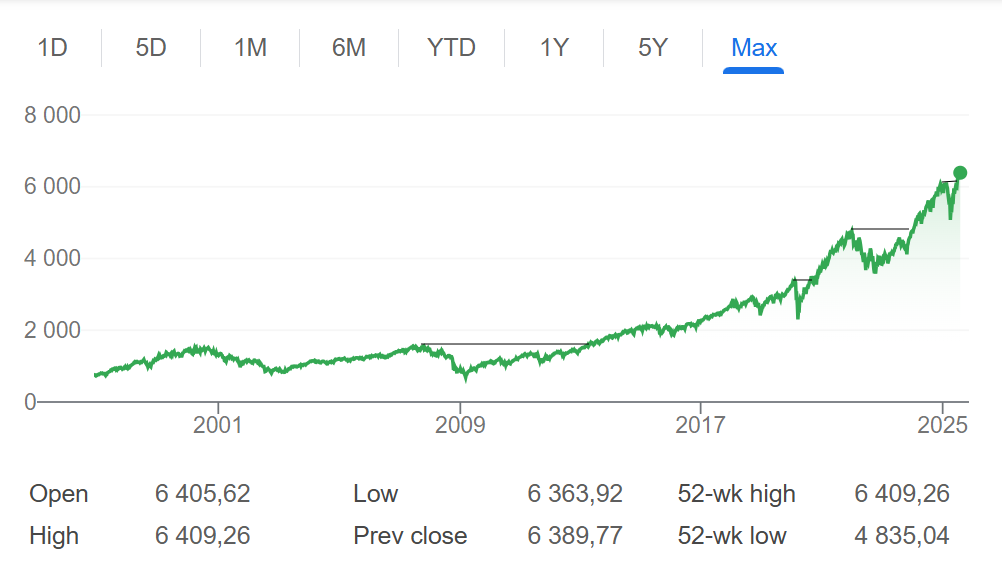By Geo Botha
•
January 27, 2026
28 February marks the end of the tax year. If you have some extra funds available, this might be the perfect time to consider adding to your savings in a retirement annuity (RA) or tax-free savings account (TFSA), thereby enjoying the significant tax benefits these products offer. Below are the benefits of both an RA and a TFSA, as summarised by our partners at Ninety-One. As always, please contact your personal financial adviser to assist you in calculating the amount you can still contribute, as well as whether this will be best for your portfolio and personal situation: Why invest in an RA? 1. RAs can be viewed as gifts from the taxman. For example, at a 45% marginal tax rate, a deductible RA contribution of R100 000 can generate up to R45 000 in tax relief (within the limits). Tax will be applicable when the funds eventually pay out at retirement, but due to the tax-exempt portion of the lump sum, as well as the tax rebates for individuals over 65 and 75, you may pay less tax at that time. 2. You do not lose your tax benefits, even if you contribute more than the maximum annual tax deduction (excess contributions) If you contribute more than the maximum (excess contributions), your tax benefit will roll over to the next tax year of assessment. Any excess contributions in subsequent tax years will continue to be rolled over. This means that you could receive a tax benefit at retirement, after retirement, or your beneficiaries could benefit when you have passed away, as explained below. RA contributions and tax Before retirement When contributing to an RA, your maximum tax deduction for the year is the lesser of: R350 000 27.5% of the higher of remuneration or taxable income Taxable income excluding taxable capital gains At retirement If you elect to receive a lump sum: The remaining excess contributions will be paid out free of tax R550 000 could be tax-free – if not previously utilised After retirement Excess contributions remaining after your retirement are deductible from your compulsory annuity income for tax purposes (section 10C of the Income Tax Act). After you pass away If your beneficiary elects to receive the full death benefit, or a portion thereof, as a lump sum: The remaining excess contributions will be paid out free of tax R550 000 could be tax-free – if not previously utilised The tax deduction limit applies to the combined total of RA contributions and all member and employer contributions to workplace pension and provident funds. 3. You enjoy estate-planning benefits. An RA is exempt from estate duty. Please note that excess contributions may be included for estate duty purposes, to the extent that a lump sum is received. The growth on your excess contributions is not subject to estate duty – you can therefore effectively peg the value of your estate (similar to the benefit obtained from a trust, prior to the introduction of section 7C of the Income Tax Act). Over time, the value of excess contributions could be reduced, which would decrease the potential estate duty payable on these excess contributions. 4. No tax is deducted within the investment (no income tax, capital gains tax or dividend withholding tax). This means you will benefit even more from compounded growth. 5. You remain disciplined with your retirement savings. The two-pot retirement regime was introduced on 1 September 2024. This system allows members access to a small portion of their retirement savings before they retire, while preserving the remainder until retirement (unless one of the exceptions specified in the Income Tax Act applies). To achieve this, various notional components within a member’s retirement fund benefit or contract were created. These components are referred to as: The Vested Component The Savings Component The Retirement Component Members are able to withdraw from the Savings component once in a tax year. Withdrawals from the Savings component are subject to a minimum of R2 000 per withdrawal and are taxed at your marginal tax rate. 6. You have protection from creditors. This means your savings for your retirement will be available when you need them. Key considerations when investing in an RA RAs are subject to Regulation 28 investment limits. On the death of the investor, the Board of Trustees will have full discretion when deciding on a fair allocation of the benefit to dependants and/or nominees, in terms of section 37C of the Pension Funds Act. There are liquidity restrictions prior to reaching retirement age. This means that you will only have access to the funds in the Savings component before reaching the age of 55 (unless you qualify for one of the exceptions). Why invest in a TFSA? TFSAs are exempt from tax on interest, dividends and capital gains. There are no restrictions on withdrawals; however, if you replenish the funds withdrawn, this will count towards your annual and lifetime contribution limits. For this reason, these investments are generally more suited to long-term investing. TFSAs are a great way to save for your child’s education (be aware of donations tax if the annual exemption of R100 000 per donor is exceeded). Contributions No matter how many TFSAs you have with different product providers, the total combined value of your contributions may not exceed R36 000 per tax year and R500 000 over your lifetime. If you exceed these contribution limits, a penalty of 40% will apply on the amount contributed above the limit, which will be added to your tax assessment.





